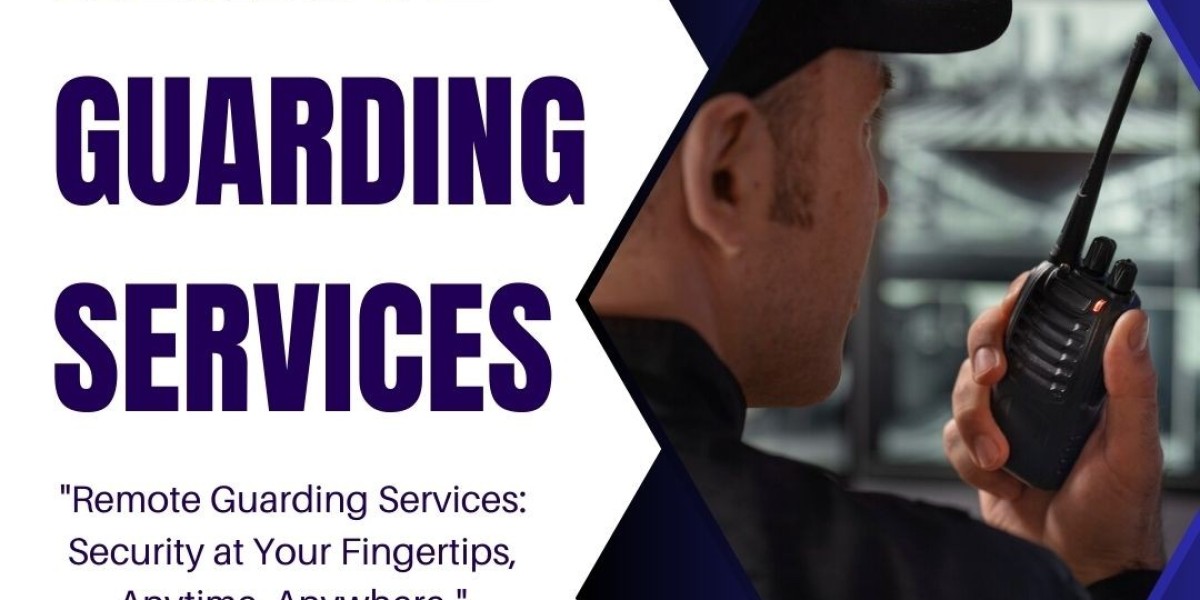With technological advancements paving the way for better surveillance, the concept of remote security guards has gained prominence. Unlike traditional security measures that require physical presence, remote security guarding leverages advanced technology to monitor and protect properties from a centralized location. This method not only ensures 24/7 vigilance but also offers cost-effective solutions for businesses and residential areas.
What is a Remote Security Guard?
A remote security guard is a trained professional who monitors and manages security systems from a remote location using a combination of cameras, sensors, and other digital tools. Through this advanced surveillance technology, remote guards can effectively respond to potential threats, intrusions, or emergencies without being physically present on-site.
How Does Remote Security Guarding Work?
Remote security guarding involves integrating various security systems such as CCTV cameras, access control systems, motion sensors, and alarms. These systems are connected to a remote monitoring center, where trained personnel continuously observe the live feeds. When suspicious activity is detected, remote guards can take immediate action by alerting local authorities, activating alarms, or even communicating with individuals on-site through intercom systems.
Advantages of Remote Security Guards
Cost-Effectiveness:
Hiring on-site security personnel can be expensive, especially for businesses that require round-the-clock monitoring. Remote security guards provide a more affordable alternative while still maintaining high levels of security.24/7 Monitoring:
With remote security services, businesses and residential properties are under constant surveillance, ensuring that there’s no gap in protection. Even during off-hours or holidays, remote guards remain vigilant, offering continuous security coverage.Rapid Response to Threats:
Remote guards can detect threats in real-time and coordinate with local law enforcement or on-site personnel to handle emergencies quickly. This immediate response can prevent potential damage, theft, or harm.Flexible Deployment:
Whether it's a large commercial property or a small residential complex, remote security guards can be tailored to meet the specific needs of any location. This flexibility makes it an ideal solution for a wide range of security challenges.Technology-Driven Efficiency:
Remote security systems utilize cutting-edge technology, ensuring that no blind spots are left unattended. With AI-driven analytics, these systems can detect anomalies, identify potential threats, and notify the remote security guard in an instant.
The Future of Security with Remote Guards
As technology continues to advance, the role of remote security guards will likely expand. With innovations like AI, machine learning, and 5G networks, remote surveillance systems will become even more efficient, reducing the need for physical security presence and further enhancing the speed of response during incidents.
In addition, the integration of smart devices and IoT (Internet of Things) will create a seamless security ecosystem, where all devices work together to provide real-time data and alerts to the remote security guard. This future-forward approach will not only enhance security but also make it more accessible for businesses of all sizes.
Conclusion
The emergence of remote security guards has transformed the way we think about security. By combining technology with human oversight, this modern approach provides a reliable, cost-effective, and scalable solution for safeguarding properties and assets. Whether for businesses, residential areas, or industrial sites, remote security guards offer a comprehensive and flexible solution that meets the demands of today’s security landscape.



